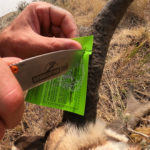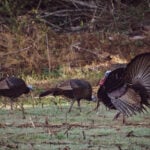We’ve all heard horror stories about tick-borne illnesses. Lyme Disease is currently the most common vector-borne illness in the United States, with nearly 30,000 cases reported each year. As hunters, we keep this in the back of our mind as we hike through the woods, and undoubtedly come into contact with these parasites on a regular basis.
Just like the disease itself, the awareness of Lyme disease has spread, and hunters have taken action to prevent or at least limit their contact with ticks, through the use of chemical methods such as DEET, a common chemical found in brands such as OFF, Picaridin, a common chemical found in brands like Repel, and Permethrin.
While the rise in awareness of Lyme Disease is great, and continued preventative steps should be taken, there is another tick-borne illness that doesn’t get as much publicity, however the long-term effects might be just as nightmarish as Lyme. That illness is Alpha-gal Syndrome, or AGS.
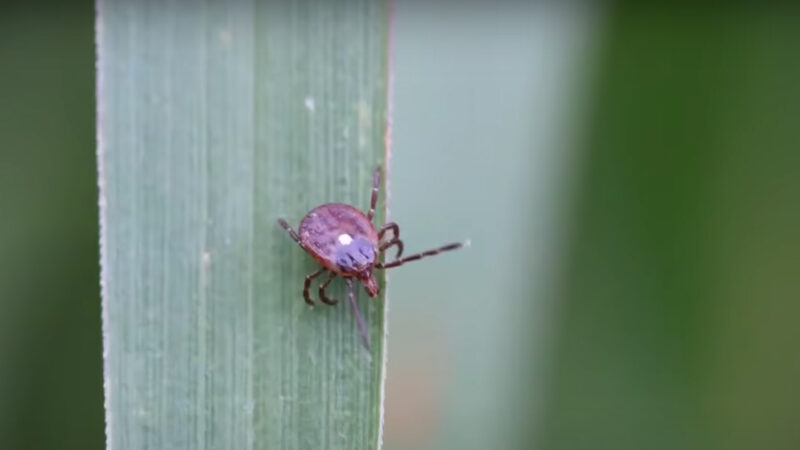
What is Alpha-gal Syndrome?
Alpha-gal Syndrome is essentially a potentially fatal allergic reaction to the sugar molecule galactose-a-1, 3-galactose, or Alpha-gal, as it is more commonly referred to as. This molecule is found in most red meat, such as beef, venison, lamb, as well as pork. Studies have shown that this molecule can also be found in dairy products such as milk and cheese, and can even be linked to gelatin, which often coats medication.
The symptoms of Alpha-gal are often severe. These symptoms can include shortness of breath, dizziness, abdominal pain, vomiting, and even anaphylaxis, which is extremely life-threatening and requires emergency medical care.
Typically, symptoms will start to appear 3-6 hours after consuming red meat or dairy products. While symptoms may vary from person to person, all cases are potentially life-threatening and if suspected should be brought to the attention of a doctor for diagnoses.
The Link to Ticks
While research is still being conducted, evidence suggests that there is a strong correlation between Alpha-gal syndrome and tick bites. Biologists have discovered an Alpha-gal antigen in the saliva of the Lone Star Tick, and believe a bite from that specific species, although it could transmit from others, is the most common cause of transmission to humans.
As the name suggests, the Lone Star Tick primarily inhabits southern parts of the United States, such as Texas and Oklahoma. However, as these ticks attach themselves to animals as well as humans, their population is beginning to spread throughout the midwest, as well as the eastern coast, and recent reports have shown a low but rising population in the western states.
As research continues and medical technology becomes more advanced, hopefully we can come to understand exactly what causes this horrible illness, and even more ways to effectively prevent it. While we don’t fully understand the relationship between AGS and tick bites, epidemiologists do see a strong correlation and believe it could be the main cause.
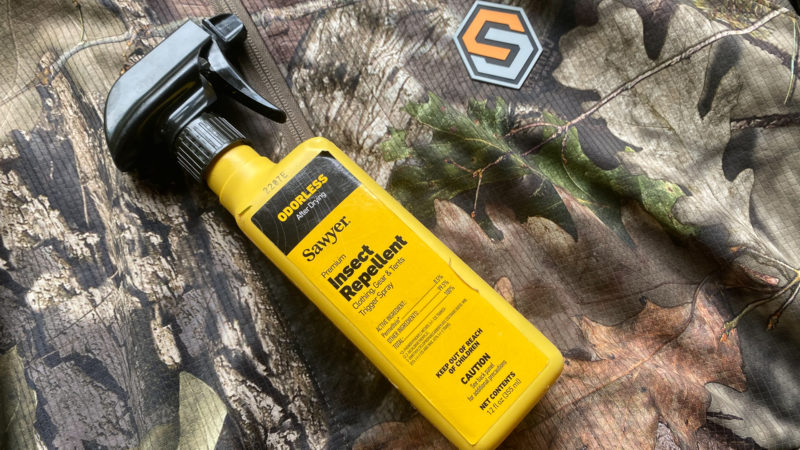
How Does AGS Impact Hunters?
There are many things that will draw someone into this wonderful lifestyle of being a hunter. The commitment to daily practice and scouting, the comradery between fellow hunters at camp, and of course, the intense adrenaline that comes with staring down a big game animal just seconds before you release your arrow. But overall, I think most hunters can agree that the greatest draw is the reward of filling the freezer, and putting those worth-more-than-gold backstraps on the grill. Can you imagine if this was taken away from you?
Well, that is exactly what happens when you are diagnosed with Alpha-gal Syndrome. Despite what some organizations will say about hunters, we are a group of people that value conservation and sustenance, and one way that we express that is by providing the highest quality protein this world has to offer to our friends and family. Ticks, specifically the Lone Star Ticks, are doing a great job of threatening that.
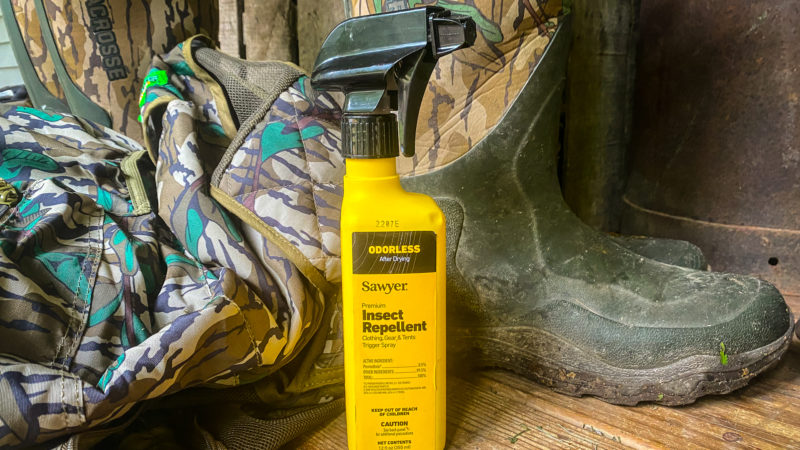
I don’t want to sound inconsiderate by implying that only hunters are affected by this illness, but the fact remains that our lifestyle poses a much higher risk, as we spend most of our time in wooded areas, as well as interacting with animals that may already have these parasites attached to them. Not to mention, hunters tend to consume higher amounts of red meat through the animals that we harvest, which after all is what causes the allergic reaction in the first place.
Keep in mind, contact with ticks can occur even when you haven’t been out stomping around in the woods. How? Think about how ticks tend to make their commute. It’s often by the pets we interact with in our homes on a daily basis. Todd Graf of Bowhunting.com stresses the importance of ensuring your dog is treated for ticks as well, both for their safety, and the safety of your family. “For those of us who sleep with our dogs, exposure to ticks can occur without ever going outside if our dogs are bringing them in,” says Graf. “Hunting aside, life outdoors, particularly with a pet, presents a number of opportunities for contact with ticks. It’s really important to make sure we protect ourselves with a permethrin based product like Sawyer.”
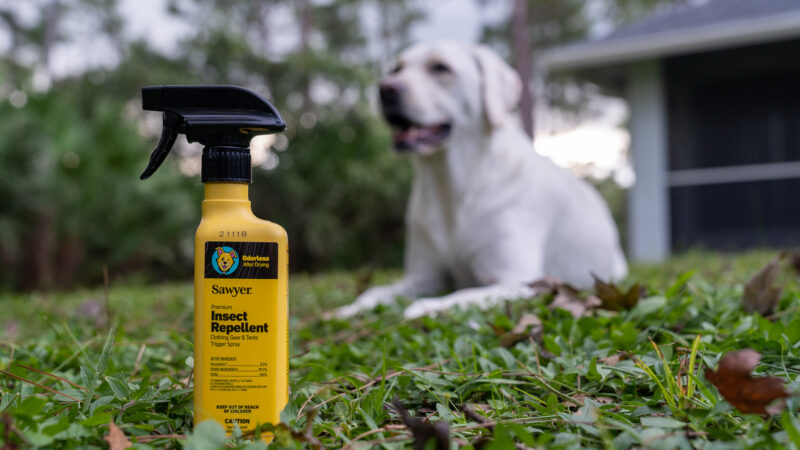
How to Treat Your Dog with Sawyer Permethrin
(For Controlling Ticks, Fleas & Lice)
- Start spraying at the tail, moving the dispenser rapidly and making sure that the animals entire body is covered, including the legs and underbody.
- While spraying, fluff the hair so that the spray will penetrate to the skin.
- Make sure spray wets thoroughly, but do not saturate animal.
- Do not spray into eyes and face.
- Avoid contact with genitalia.
- Wear rubber gloves or mitts when applying this product.
- Do not use on puppies under twelve weeks.
- Consult a veterinarian before using this product on debilitated, medicated, aged, pregnant or nursing animals.
- Do not use on cats or kittens.
Life With Alpha-gal Syndrome
Over the years I have hunted with some incredible people that unfortunately are fighting Alpha-gal Syndrome. Hearing their stories made me realize just how scary this illness can be, as most of them only found out what they had after anaphylactic shock had already set in, and they immediately needed medical attention.
Of the people suffering with AGS that I have met, some have given up hunting. The thought of hunting big game without the rewards of enjoying the meat afterwards didn’t seem worth it to them. However, some of them still enjoy the process of hunting and have decided to donate any meat to local food pantries as well as gifting it to family and friends, which is admirable.
While there is currently no known cure for AGS, epidemiologists believe there is still hope for those that are suffering from it. For now, the best treatment is to avoid consumption and even contact with mammalian meat and by-products such as dairy. However, some research suggests that long-term avoidance from the meat, as well as preventing any additional tick bites, may in fact bring those antibody levels down, with hopes that this illness will eventually go away on its own.
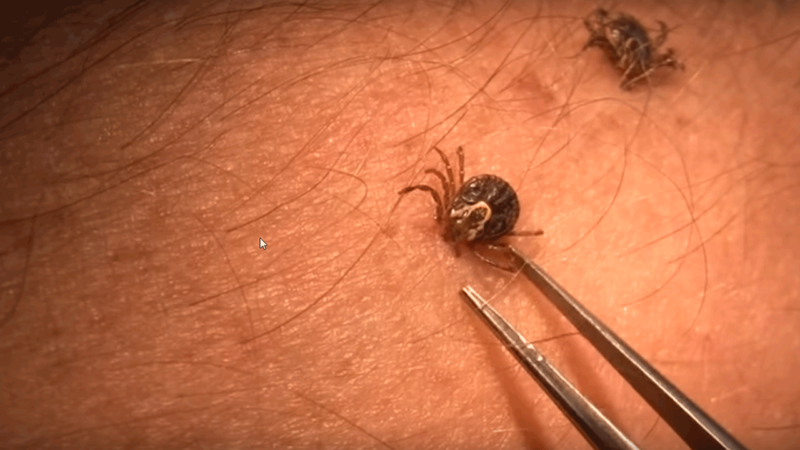
Final Thoughts
This illness is undoubtedly something that needs to be taken seriously by everyone. No one wants to be affected by such a life-threatening condition, whether through a friend or family member being diagnosed, or themselves.
It’s clear that the hunting community specifically will be largely impacted, due to our lifestyle and exposure to animals such as deer and other big game, which are common carriers of ticks. In fact, in a recent research study, doctors identified hunters as being one of the most common patients that have been diagnosed with AGS.
Hunters have always been great at uniting together to raise awareness for important causes. I have no doubt in my mind that we as hunters can join together to spread awareness of AGS and limit the impact it has on everyone.
For now, it’s important that hunters take precautionary measures to prevent this terrible illness from altering their lives. Spray down with Permethrin or other tick repellents before entering the woods. Wear long pants and tuck them into rubber boots as you hike through the woods. After a hunt, take some time to check your body for ticks, and carefully remove any that you find, ensuring that no part of the tick is left attached. And most importantly, spread awareness about tick prevention as well as Alpha-gal Syndrome. You very well could be saving someone’s life.

 By
By 

